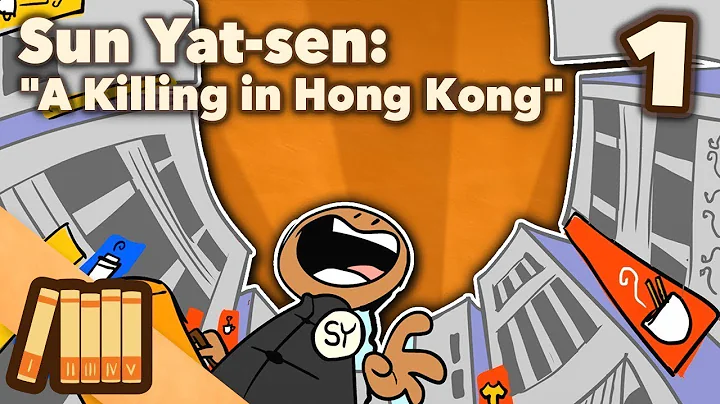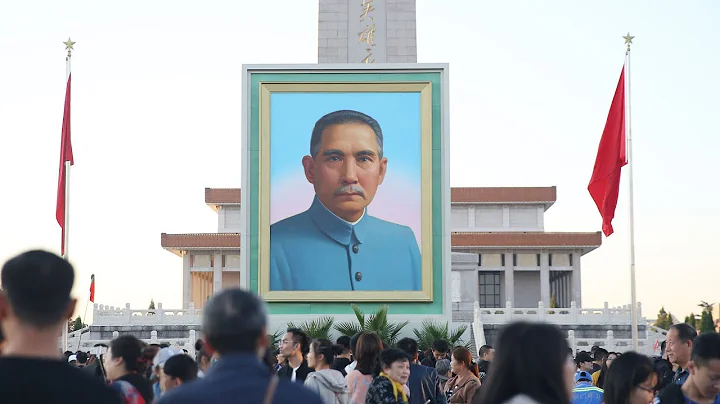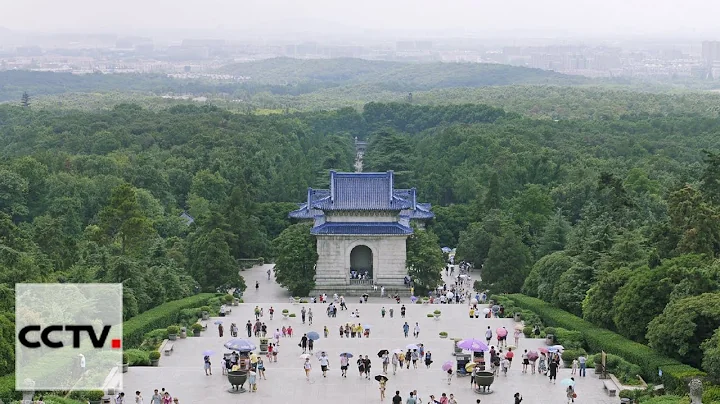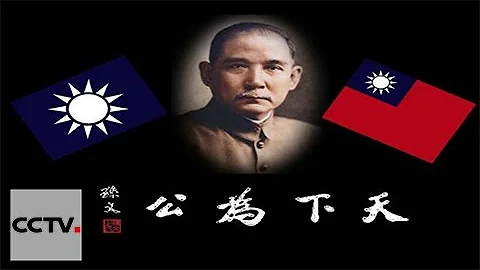Full-length novel series: Floating Life in the Lotus Pond - Legend of the Cheng Family of Marquis of Fujian Province (233)
( WeChat reading has the audio of the book read by a robot, welcome to listen)
[Released every Monday, Tuesday and Wednesday]
二三Third, Sun Yat-sen put forward a condition for taking office as interim president.
It is said that on the evening of April 13, 1927, Lin Haomin, a Communist who witnessed the massacre on Baoshan Road in Shanghai that afternoon, had dinner at Laobanzhai on Hankou Road and took the food he had stored in Lao Banzhai. Banzhai manager Xu Yinggen had a suitcase containing clothes, a hundred silver dollars, and a gift of 50 silver dollars from Xu Yinggen. He hurried to Shiliupu Pier , randomly bought a ticket for the earliest sailing, and boarded Got on the passenger ship bound for Wenzhou .
Lin Haomin was in a mess.
Anger, grief, confusion, panic...
have it all.
Lin Haomin lay in the first class cabin and thought about it for a long time before falling asleep.

(Picture above: A rally in the rain at Qingyun Road Square in Shanghai on the morning of April 13, 1927.)
The next morning, I was watching the heavy rain hitting the portholes in the cabin, and my mind was still filled with the sudden changes in the past two days. The blood was flowing like a river, but it was still hard to calm down.
The rain was too heavy and he could not stay on the deck for long, so Lin Haomin hid in his first-class cabin and recorded what happened in the past two days bit by bit.
But he was afraid of being seen, so he wrote Shanghai as Paris, the year as 1900, Wu Minglun, the single-line superior who died in the Baoshan Road murder case, as Lucien, and Victor Zeng, the single-line subordinate and traitor Zeng Zitao.
was writing when suddenly, someone knocked on the door outside the room: Dong Dong Dong, Dong Dong Dong.
Lin Haomin hurriedly put away his notebook, put it back into his suitcase, and then opened the door.
After opening the door, I saw a fair-skinned young man in his early 20s standing outside the door, holding a large suitcase in his hand.
This young man said to Lin Haomin in Mandarin with a Zhejiang accent: "Sir, my father also lives in this room."
It turned out that he had a roommate. Lin Haomin secretly breathed a sigh of relief and hurriedly said, "Come in, come in."
The young man stepped through the door, put the suitcase on the empty bed aside, then turned back and went out, helping his father in.
The father is not very old, about 50 years old. Lin Haomin thinks he is younger than his own father.
If you are over 50 years old, do you need to be helped to walk?
Because fathers are very old in the eyes of their children. The author of this book, Mr. Cheng, was called "Old Dad" by his daughter when he was in his 30s.
In addition, the steel threshold of the cabin door is a bit high. Young people have to be careful when crossing this threshold, let alone an old man who is half a hundred years old.
Also, this threshold and the entire "living" environment on the ship are quite unfamiliar to ordinary passengers, so it is best for everyone to be careful.
After the father came in, Lin Haomin also helped him.
Father and son said thank you in unison.
After everyone sat down, they chatted.
Lin Haomin asked first: "What place is this?"
The young man and his father answered almost simultaneously: "Xiangshan."

(Picture above: Xiangshan Shipu Old Town.)
It was already two or three o'clock in the afternoon. The ship docked at Xiangshan Port . Some passengers disembarked and some boarded the ship from here.
The father and son just got off the boat from Xiangshan Mountain.
The father and son were very talkative, especially the young man.
He took the initiative to introduce his surname as Huang and Huang Yaosheng, and they were from Wenzhou. Because his sister in Xiangshan gave birth to a son on the seventh day of February, he accompanied his parents to eat his nephew's full moon wine .
Lin Haomin thought, today is March 13th. Huang Yaosheng has been coming to Xiangshan with his parents for several days.
People at that time were accustomed to living according to the lunar calendar.
It is said that after the Revolution of 1911 , in order to organize the provisional central government , it had declared independence from the provinces outside the Manchu and Qing Dynasty and established a transitional parliamentary authority, "the representatives of the provincial governors' offices jointly meeting".
On December 29 of the Gregorian calendar, representatives from various provinces held a meeting in Nanjing to elect an interim president. Sun Yat-sen was elected as the interim president.
Sun Yat-sen raised a question that no one thought of, that is, the country switched to the Gregorian calendar.
Sun Yat-sen said that November 13, 1911, is January 1, 1912 according to the Gregorian calendar. If you elect me as the president, I plan to take office on that day. At the same time, I will announce that China will switch to the Gregorian calendar. This day will be the Republic of China. The first New Year's Day.
What if the representatives do not agree to this condition?
Sun Yat-sen said that he would not go to Nanjing to take office.
On December 31st of the Gregorian calendar, the representative meeting spent the whole day on this topic but could not finalize it.
After dinner, the discussion continued until late at night. Those representatives who advocated maintaining the use of the old calendar and couldn't stand it any longer. They yawned again and again, ah, ah, ah, forget it, let's use the solar calendar.
You see, China uses the Gregorian calendar, which was the result of a struggle between the new-school people and the old-school people.
knows how to cook Daying, right?
Boiling a big eagle is a domesticated hunting eagle.
caught the wild eagle and refused to let it sleep. Wake it up when it is dozing off, shine a light on it, and prick its eyes.
If you endure it like this for several days, no matter how wild the eagle is, it will become honest.
Late at night on December 31, 1911, the new delegates, who had put the old delegates to bed, ordered the conference staff to reply to Sun Yat-sen overnight, saying that the delegate conference had approved the use of the Gregorian calendar and that they should come to Beijing to take office immediately.
"京" refers to Nanjing.
On the morning of January 1, 1912, Sun Yat-sen left Shanghai without haste and went to Nanjing to take up his post.
Transportation was inconvenient at that time, so it took a day to get to Nanjing. Therefore, Sun Yat-sen was sworn in as interim president at 10 o'clock in the night on January 1, 1912.
At the inauguration ceremony, he issued a telegram: "The Republic of China switched to the Gregorian calendar, and November 13, 4609 of the Yellow Emperor's Era, was the New Year's Day of the Republic of China. November 13, 4609 of the Yellow Emperor's Era, that is, January 1, 1912, was the New Year's Day of the Republic of China. The day of the first month of the first year. "
In order to take into account the habits of the Chinese people, the government adopted the method of combining the lunisolar calendar with the lunar calendar day in parentheses after the solar calendar day. Calendars, month cards, newspapers and periodicals are all handled in this way. Later, when television came along, TV stations followed suit. It's still like this.

(Above: Month plates of the lunisolar calendar in 1912.)
In 1927, the solar calendar had only been in use for 15 years. The lunar calendar, which had been used for thousands of years before, was still the mainstream among the people.
Don’t talk about 1927, it was still like this in 1957. The author of this book, Mr. Cheng, was born in 1957. The solar calendar has been used for 45 years. My birthday is still recorded according to the lunar calendar. I never know which day of my birthday is in the solar calendar. It wasn't until the 1980s when I needed to apply for an ID card that I checked the solar calendar corresponding to my birthday.
It is said that at two or three o'clock in the afternoon on April 14, 1927, the ship Lin Haomin was riding stopped at Xiangshan. In the first-class room where he stayed, new passengers came, Huang Yaosheng and his father from Wenzhou.
Huang Yaosheng said that after his sister got married, she gave birth to two daughters in succession. She gave birth to her first son this year, so her parents came all the way from Wenzhou to Xiangshan to celebrate.
Now he goes home with his father, and his mother stays at the home of her sister and brother-in-law in Xiangshan for a while.
After chatting for a long time, Huang Yaosheng suddenly said: "I have met you, are you Mr. Lin? Mr. Lin from the Commercial Press ?"
Lin Haomin was thinking about how to introduce himself. He also planned not to tell his real name, but he didn't expect it. The other party knew him and called him "Mr. Lin". He even knew about the Commercial Press, so he asked: "How do you know me?"
Huang Yaosheng said: " Zheng Zhenduo , I met you at Zheng Zhenduo's house in Wenzhou. "
Lin Haomin also remembered: "Oh...yes, yes, that time I went to Mr. Zheng's house to deliver daffodil heads, and you and your son were both there. The old man was Zheng Zhenduo's middle school teacher, right?"
The Huang family and his son said in unison. Ah yes.
Lin Haomin said: "No wonder Mr. Huang is going back to Wenzhou now. Are you still teaching in Wenzhou No. 10 Middle School?"
Wenzhou No. 10 Middle School is not Wenzhou No. 10 Middle School, but Zhejiang Provincial No. 10 Middle School. This middle school is in Wenzhou.It is now called Wenzhou Middle School .
Mr. Huang said: "Yes, yes, I will take a few days off this time and rush back now."
Zheng Zhenduo, his hometown is Changle, Fuzhou. He was born in Yongjia, Wenzhou.
Therefore, people in Fuzhou say that he is from Fuzhou, and people from Wenzhou say that he is from Wenzhou.
are both correct.
Zheng Zhenduo himself positions himself this way: "a Fujianese who grew up in Wenzhou."

(Pictured above: Zheng Zhenduo in his youth.)
Zheng Zhenduo’s grandfather was a scholar, but he did not achieve any fame.
At that time, scholars who had not achieved fame could not become officials. There were generally three ways out: first, setting up a library to teach; second, working as an adviser to officials, commonly known as a master; third, "re-reading" and taking the exam again next time.
Zheng Zhenduo’s grandfather chose the second path.
My grandfather's cousin went to Wenzhou to work as a salt officer (some say it was Daotai ) and asked him to become a master, so my grandfather moved his family to Wenzhou.
At that time, Shaoxing masters were all over the world, but Shaoxing masters rarely worked in Zhejiang because, according to ancient rules, officials were sent from other places and people from other places were sent. For example, Zheng Zhenduo's grandfather's cousin was from Fuzhou, and he took his master directly from Fuzhou to Wenzhou to take up the post.
In 1917, when Zheng Zhenduo was 19 years old, he was admitted to the Beijing Railway Management Institute (today's Beijing Jiaotong University) before leaving Wenzhou. Wenzhou dialect was one of his native languages.
At the same time, Fuzhou dialect is also his mother tongue.
Old man Cheng said in the previous chapter that Fuzhou people are very stubborn. No matter where they migrate, the first generation of immigrants will definitely insist on speaking Fuzhou dialect, their second generation will definitely speak Fuzhou dialect, and the third generation will also definitely speak Fuzhou dialect. Can speak Fuzhou dialect.
This is the case for Lin Huiyin, whose grandfather was an official in Hangzhou. Fuzhou dialect is one of her mother tongues.
Old man Cheng did not find any record of Lin Huiyin speaking Hangzhou dialect .
I guess Lin Huiyin may not speak Hangzhou dialect. Lin Huiyin only lived in Hangzhou for 8 years, and he must have forgotten all the Hangzhou dialect he could speak in his childhood. After all, after leaving Hangzhou, she no longer had the opportunity to speak Hangzhou dialect.
Zheng Zhenduo considers himself to have two hometowns, Wenzhou and Fuzhou.
When he sees Wenzhou people, he speaks Wenzhou dialect, and when he sees Fuzhou people, he speaks Fuzhou dialect.
Zheng Zhenduo's father-in-law, Gao Fengqian, director of the Compilation Office of the Commercial Press and president of the publishing house, is from Changle, Fujian.
Gao Fengqian’s hometown is Longmen Village in the southwest of Changle County, and Zheng Zhenduo’s grandfather is from Shouzhan Village. Shouzhan Village is located to the north of Longmen Village, and the two villages are next to each other.
[Review] I talked about Gao Fengqian in the previous chapter. One year before the Qing government officially abolished the imperial examination, the 30th year of Guangxu (1904), he co-edited the " Latest Chinese Textbook" with Zhang Yuanji 》.

(Pictured above: Gao Fengqian and Zhang Yuanji edited the "Latest Chinese Textbook".)
Gao Fengqian is not from Changle whose ancestral home is Changle . He was born in Changle, grew up in Fuzhou City, and did not leave Fuzhou until he was 26 years old, so he speaks Fuzhou dialect Very authentic.
Lin Haomin joined the Compilation Office of the Commercial Press in 1918 as an editor.
Zheng Zhenduo was a few years late. He entered the Commercial Press in 1921 and also worked in the Translation and Compilation Institute.
Two people who can speak Fuzhou dialect work in the same department, so naturally they are very friendly.
Zheng Zhenduo is an extroverted talent, full of passion and energy. At the end of 1921, he creatively planned the weekly "Children's World". He was almost responsible for the content of the first few issues of .
Lin Haomin is different from Zheng Zhenduo. He is not a writer, but a master editor. He has no works of his own and specializes in marrying others.
The Commercial Press has a large number of editors like Lin Haomin, who are sharp-eyed, good at picking up good topics, good at discovering good writers, and good at publishing good books.
Lin Haomin also has a unique skill that you must not have thought of.





















